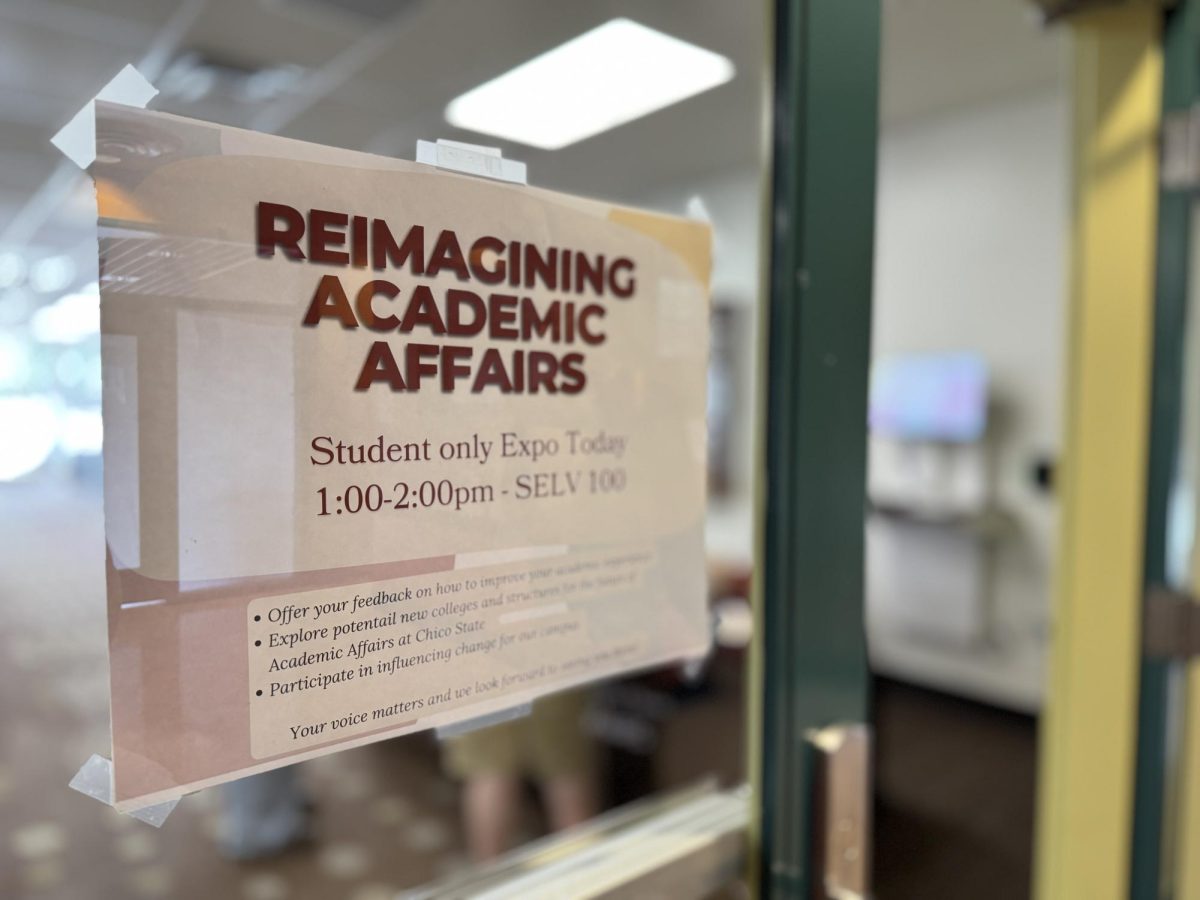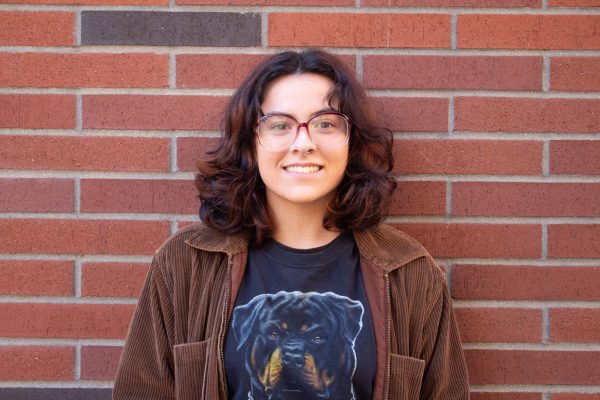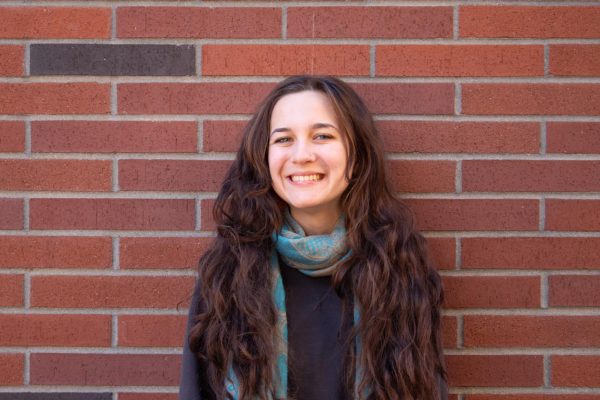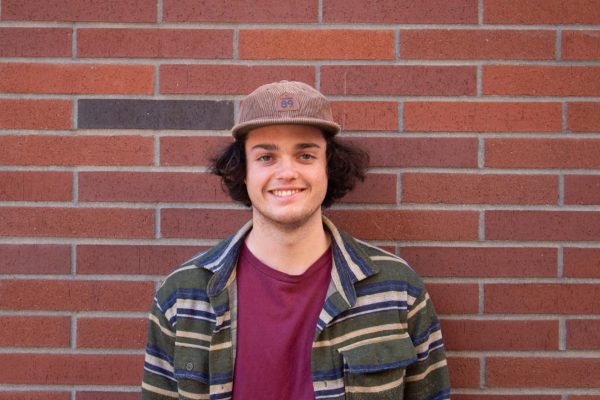Correction Feb. 26 – Corrected a Miranda Flint’s major
Through exasperated breaths, Miranda Flint, a senior studying geology, pressured Provost Leslie Cornick on the future of her degree and what it means for her classmates to have Academic Affairs reimagined.
In August of 2024, Cornick charged a Special Action Team to gather student input and data and to bring recommendations to the Provost Advisory Council. After the SAT proposed recommendations alongside an outside consultant, the Education Advisory Board, the reimagining Academic Affairs entered phase two which sought to receive community feedback during expos on a variety of models for how the university would look in the future.
Erasure of majors
Natural science students shared their concerns about the lack of the word “science” in the proposed models and asked for clarification. Cornick emphasized that they would include sciences in the names of upcoming models.
Flint shared that she feels uneasy about the future of science due to the United States’ current administration. She feels it “is deeply unsettling” to see the university proposing changes to the structure.
“We’re scared, we have fears, and I want to make sure that the university administration understands that,” Flint said. “We feel so underrepresented as science students by our administrators.”
Transparency and communication
Some community members felt that there was a lack of communication on what these models could mean and shared that they didn’t feel like they were given the ability to raise their concerns, or share their beliefs about the reimagining of Academic Affairs.
Kathryn Anderson, a wildland management major pursuing her masters degree, felt uneasy about the provost’s transparency.
“I don’t feel like I can trust her – especially when she was asked if there would be layoffs, and then she was asked if she could be held accountable, and she went silent,” Anderson said.
Harlan Weatherall, a freshman studying bioscience, shared that he feels concerned about the communication between administration and students.
“The fact that it’s not incredibly obvious where our core sciences are going is crazy,” Weatherall said.
He said that he didn’t know about the changes being implemented until two weeks before the meeting.
“Any email that I got about this meeting didn’t show up in the Outlook focus tab, it showed up in the ‘other’ tab,” he said.
Weatherall said that he heard about the meeting through a campus club.
Denon Kumar, a junior studying microbiology and biosciences, said that they thought the provost’s talking points didn’t match the intentions of the models.
“I feel like a lot of things she mentioned about her goals are actually the opposite of what the plan would do,” Kumar said. “Consolidating colleges is going to force fewer staff members to have more work.”
Maredith Berdeja, a graduate student in the biological sciences, felt that students should have been involved earlier in the process.
“By looking at the website, it says that the first phase was in Fall 2024, so if this has been going on since last semester, why are we barely hearing about this now?” she said. “I don’t think today was successful to be quite honest. I think that she’s [Cornick] going to have to work harder because there are a lot of people who are upset, reasonably upset, and I think that this has been a recurring thing at Chico State where the administration lacks transparency.”
Students’ sentiments
Overall, students shared that they didn’t think the meeting was successful and that their questions didn’t receive adequate responses. They voiced frustrations with time constraints and accused Cornick of dancing around certain questions.
Berdeja had addressed the crowd of students early in the expo, imploring them to listen to what the provost had to say so that they give their feedback effectively and all come to a conclusion.
“If we are all ripping each other apart, we are not really getting answers; we are just kind of talking over each other, and the conversation doesn’t become productive,” Berdeja said.
Berdeja also felt that the time and location of the event were inefficient in accomplishing anything meaningful.
Faith Yah, a cellular and molecular biology major, did not feel the expo was successful. Yah explained that the provost’s responses “were not fully targeting our questions.”
Specifically, Yah felt that the provost’s response to a question on the percentage of SAT recommendations and the Education Advisory Board used in the three models could have had more concrete answers.
“I also feel like as science majors, I feel like we aren’t being respected enough knowing that we know how to quantify data, we know how to look at these graphs, we know how to look at these charts,” she said. “We talk with our professors every single day, and they are training us in these things. So give us the real answers, not the diluted political ones.”
Nadia Hill, Chris Hutton and Lexi Lynn can be reached at orionmanagaingeditor@gmail.com.












